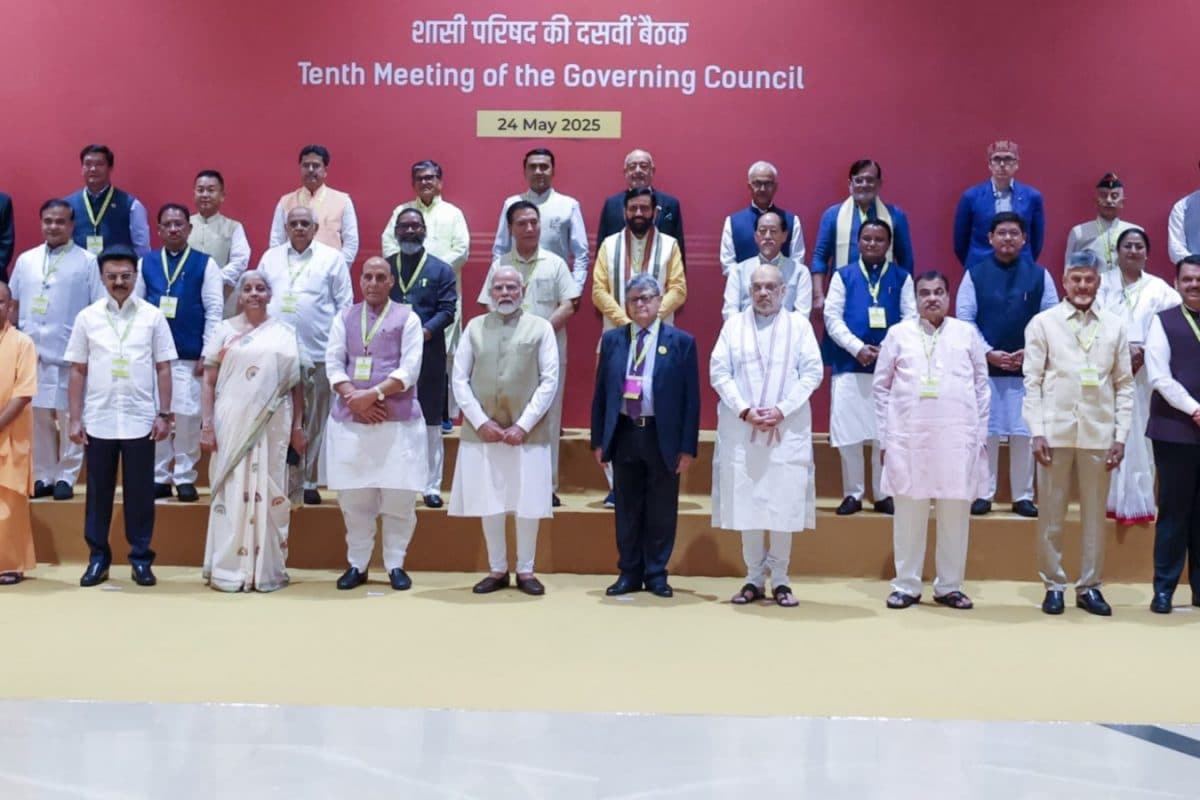

Prime Minister Narendra Modi chaired the 10th Governing Council Meeting of NITI Aayog in New Delhi on Saturday, emphasizing the critical role of Centre-State synergy in achieving the vision of ‘Viksit Bharat’ by 2047. The meeting, held at Bharat Mandapam, brought together chief ministers of all states, lieutenant governors of Union Territories, and senior Union ministers to deliberate on the theme ‘Viksit Rajya for Viksit Bharat @2047’.
This was the first major interaction between the Prime Minister and state leaders following Operation Sindoor, reinforcing his commitment to cooperative federalism through a "Team India" approach. Modi stressed that the speed of development needs to increase and that "If the Centre and all the States come together and work together like Team India, no goal is impossible."
The NITI Aayog Governing Council serves as the apex body for shaping national development priorities, fostering collaboration between states and Union Territories. The focus of this year’s meeting was to encourage states to create comprehensive, long-term vision documents that align with national objectives while remaining rooted in local realities. These visions, according to NITI Aayog, must include time-bound targets to ensure effective and outcome-driven planning at the state level.
During the meeting, PM Modi highlighted the importance of developing world-class tourist destinations in each state. He urged states to develop at least one tourist spot that meets global standards, complete with modern facilities and infrastructure. The Prime Minister noted that "One State: One Global Destination" would not only boost tourism but also spur development in neighboring cities.
Recognizing the rapid pace of urbanization in India, Modi emphasized the need for "future-ready cities," driven by growth, innovation, and sustainability. He also underscored the importance of including women in the workforce and creating policies that respectfully integrate them.
The Prime Minister stressed that the combined efforts of the central, state, and UT governments should focus on implementing policies that tangibly improve the lives of ordinary citizens. He stated that positive change felt by the people would strengthen and transform into a broader movement, emphasizing the significant opportunity to achieve large-scale transformation through collaborative governance.
The meeting saw participation from numerous state leaders and Union ministers, but some notable figures, including the Chief Ministers of Andhra Pradesh, Tamil Nadu, Telangana, and West Bengal, N Chandrababu Naidu, M K Stalin, A Revanth Reddy, and Mamata Banerjee, were absent.
Despite some political figures questioning the credibility of long-term promises and the effectiveness of NITI Aayog compared to the former Planning Commission, the meeting was largely viewed as a crucial step towards fostering Centre-State cooperation for achieving the ambitious ‘Viksit Bharat’ vision by 2047. JD-U National Spokesperson Rajeev Ranjan lauded the initiative, emphasizing the importance of bridging development gaps between states and addressing the unequal distribution of resources.